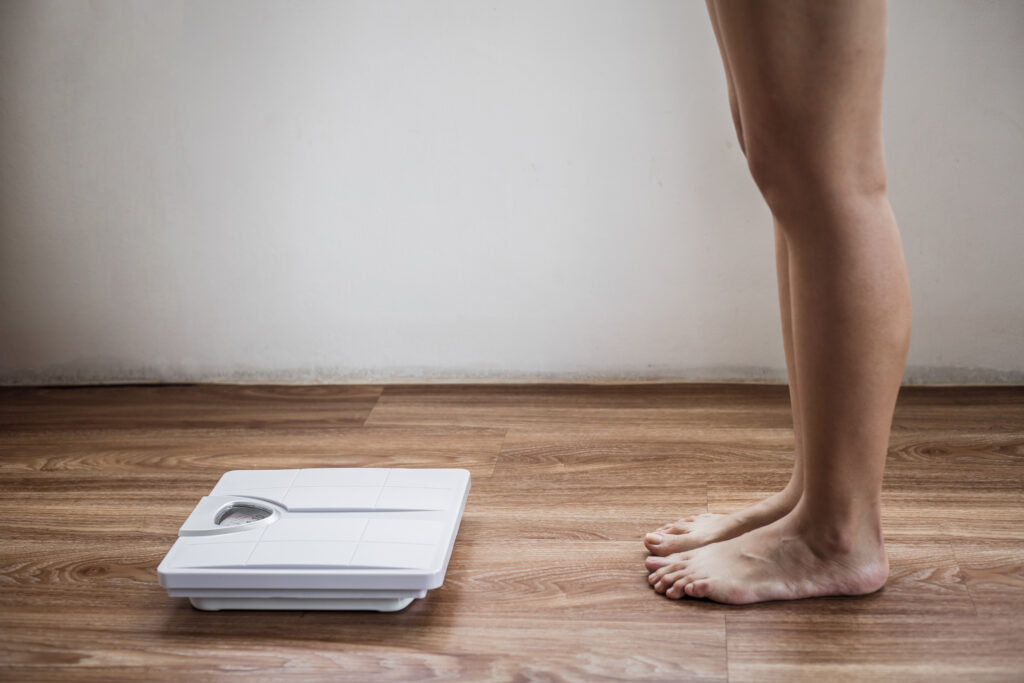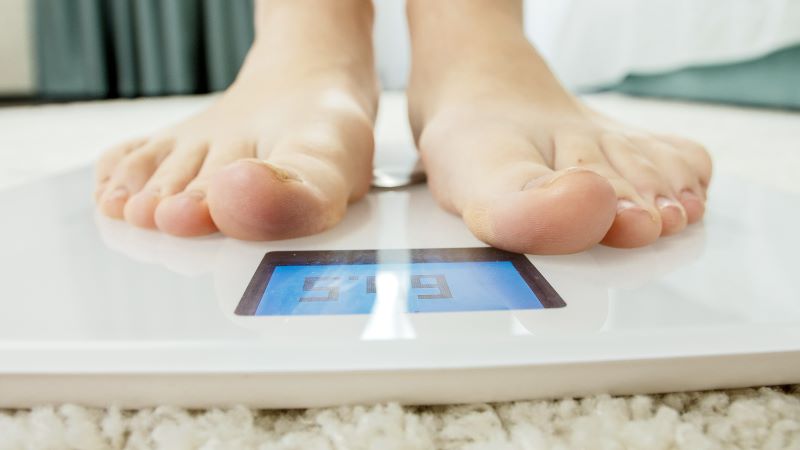We don’t often think about how your weight impacts your feet. Your feet and ankles support most of your weight. For adults, as you gain weight, the structure of your feet remains the same. Your bones don’t get stronger and neither do your ligaments. A bit of extra weight increases the pressure on your feet tenfold. It is no wonder that many foot problems are exacerbated by an increase in weight. In this article, you will learn how your weight impacts your feet if you can lose weight in your feet, and what the necessary fat pads on ankles are for.
 Weight on Feet
Weight on Feet
How your weight impacts your feet will vary from person to person, but if you are overweight, you are at an increased risk for multiple foot issues
Flat Feet.
The extra weight on the feet can cause tendons to weaken. Over time, the arch will collapse and the feet will become flat. Flat feet can not provide optimal support to the rest of the body. They are associated with other foot issues like Plantar Fasciitis, but the slow flattening of your feet can also cause significant pain. Although losing weight could help, it would take some pressure off your feet, supportive footwear with orthotics will hold your foot in a way that will reduce your pain.
Plantar Fasciitis
Another foot problem common amongst overweight and obese patients is Plantar Fasciitis. Plantar Fasciitis refers to inflammation along the tendon that connects the toes to the heel. Sufferers will feel a sharp pain in their heels, often the worst when they first wake up. Like flat feet, losing weight should help relieve the pain. In the meantime, proper footwear and stretching should relieve your Plantar Fasciitis pain.
Tendonitis
Much like Plantar Fasciitis, excess weight can lead to inflammation in the tendons. This is referred to as tendonitis. If you have flat feet, you are likely to have tendonitis of the Achilles tendon which connects the heel to the calf muscle. Losing weight will reduce pressure on the feet, allow them to overtime regain an arch, and relieve tendonitis pain.
Bone Spurs
These are another result of how your weight impacts your feet. Bone spurs are created by the body in an effort to lessen the friction between two bones. Extra weight means extra stress. Extra stress could manifest as increased friction resulting in a bone spur.
Arthritis
A big worry many people have regarding how your weight impacts your feet is arthritis. Arthritis can be debilitating. 1 in 3 obese people will be diagnosed with arthritis. Arthritis is the breaking down of the cartilage between joints. Cartilage cushions joints. Without it, your bones have no buffer between them. They can grind against each other, causing intense pain with every movement. Arthritis of the feet and ankles is a common area for arthritis to develop.
Type 2 Diabetes
Most people are aware that being overweight puts you at risk for type 2 Diabetes. Type 2 Diabetes affects the way the body filters sugar. Patients often struggle to regulate their blood sugar using insulin and diet. If diabetes becomes out of control, diabetics can find themselves suffering from compressed nerves in their legs and feet which means they will have a reduction in the feeling of those extremities. This is referred to as diabetic neuropathy. Once this happens, they are at risk for infected puncture wounds as they can not feel if they step on something.
 Can You Lose Weight in Your Feet?
Can You Lose Weight in Your Feet?
How your weight impacts your feet goes beyond medical conditions. Can you lose weight in your feet? While you can not spot reduce weight in your feet, when you lose weight you might find your shoe size goes down a bit. Weight loss will result in a decrease in inflammation and fat throughout your body, including your feet.
The change will likely not be extreme. You might find your shoes are a little loose, but you should not expect to go down more than about a half size. Even when you lose weight, the structure of your foot remains the same. Any significant changes are likely from a reduction in swelling rather than a reduction in fat.
Fat Pads on Ankles
When we talk about fat pads on the ankles, we could be referring to two things. One is Kager’s fat pad. This fat pad is located on the ankle behind the Achilles tendon. These fat pads on the ankles can become inflamed. When it becomes inflamed it is often accompanied by inflammation in the surrounding structures like the Achilles tendon. The Kager’s fat pad is not fat you can or need to lose. It is a part of the structure of your foot and has nothing to worry about.
When the average person thinks of fat pads on ankles, they are likely to think of cankles. Cankles are the term used to describe a leg where the ankle is not defined. Although cankles are generally considered undesirable, most of the time they are nothing to worry about. Some people have larger bones, muscles, and tendons. You may be able to define your ankles by losing weight, but a lot of the time it is about how your legs are built rather than excess weight.
In some cases, cankles can be caused by a condition known as Lipoedema. This painful condition causes fat to be stored on the legs. Exercise and diet will not get rid of the fat. Lymphodema is another disorder that can cause cankles. This condition causes lymphatic fluid to build up in the body, including in the ankles. The weight of these conditions will still have the same impact as it would on any other overweight person.
Whether or not you can lose weight, it is important to understand how excess weight will affect your feet. Be proactive. Buy supportive shoes and do stretches to prevent pain instead of trying to heal it after the fact. Stay active and incorporate a balanced diet when possible. Your feet will thank you.
 Foot and Ankle Specialists of Illinois
Foot and Ankle Specialists of Illinois
If you are looking for foot care, the Foot and Ankle Specialists of Illinois have the doctors for you. We understand that weight can be a difficult issue. If your weight is causing foot problems, we will help you find relief so you can get back to your life.

